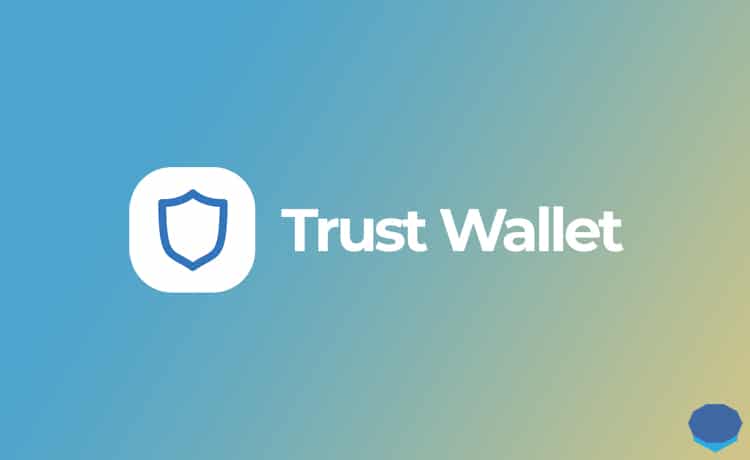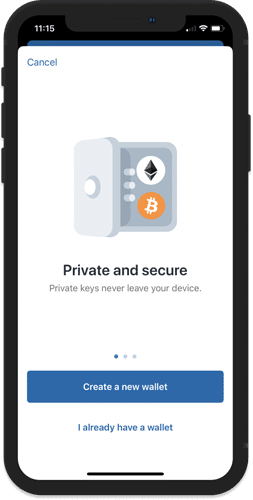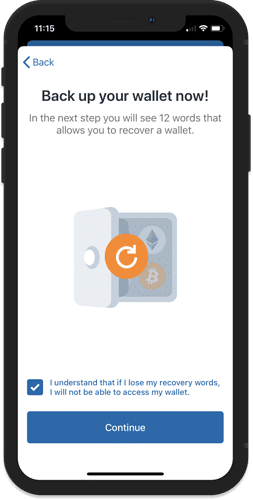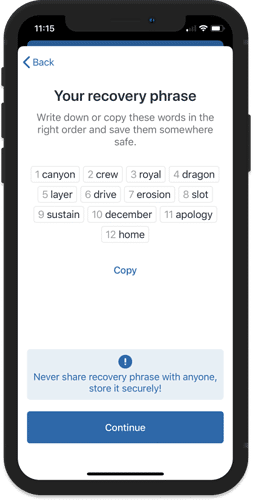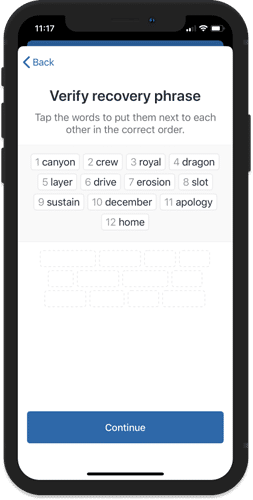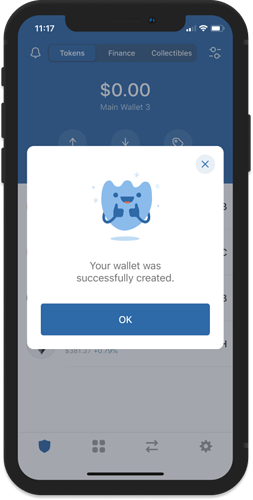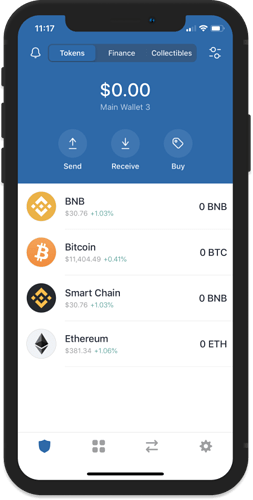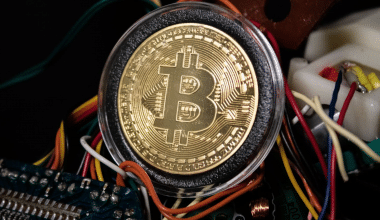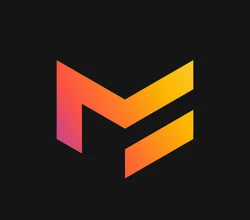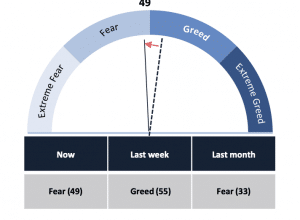As more people use cryptocurrencies and decentralized applications, it is more important than ever to have a simple and reliable method of accessing them. Whether you want to invest, make payments, or use DApps, having multiple solutions for different activities can quickly become inconvenient. But while the are so many options to choose from, this post will focus on the Trust wallet option. We’ll take you through how to use Trust Wallet, tokens available, and whether or not this option has a desktop version.
Why do you need Wallets?
In contrast to traditional financial markets, the world of cryptocurrency never sleeps. More volatile in nature, conditions can change on the fly, so it’s critical to have constant access to your funds while on the go. One of the several options that come to mind at this point is the Trust Wallet. For the most part, there are several factors you should look out for then picking a crypto wallet. That, however, goes beyond the scope of this post.
For now let’s focus on what Trust Wallet has to offer and how to use it.
What is Trust Wallet?
Trust Wallet is a cryptocurrency wallet that accepts Ethereum, ERC20, and ERC223 tokens. Tokens on the Ethereum blockchain can be exchanged for other digital currencies on Trust Wallet, and the ERC20 standard enables users to interact with other Dapps that support the same standard. Approximately 30,000 tokens are supported by the app.
Furthermore, Trust Wallet, which is completely decentralized, provides you with a simple mobile app for managing your tokens and coins while also giving you complete control over your private keys. You can store the vast majority of tokens on the market with Trust. Also more projects and blockchains are being adopted all the time.
Trust’s Universal Wallet (or multi-coin wallet) allows you to have a single backup for all of your assets, making wallet management easier. And, of course, it works well with decentralized exchanges.
In addition, it includes a built-in Web3 browser that allows you to explore the decentralized internet’s DApps in a seamless and secure manner. Considering that blockchain is a new and complicated technology, you can rely on Trust DApp Marketplace to help you navigate it. It is a home for decentralized applications that meet stringent quality and security standards and are optimized to perform at their peak.
You’d agree with me that that’s quite a lot for an app intended to store crypto assets. But at this point, we have to get some things straight. And in order to do that, I will have to borrow a popular phrase in the crypto sphere.
Disclaimer !!!
This information is not financial advice or an endorsement of cryptocurrency or any specific provider, service, or offering. Cryptocurrencies are highly volatile and high risk. Do your own research and seek financial advice before buying. Please check with providers if their services are available in your state.
With that all sorted out, we can move on…
How does Trust Wallet Work?
A wallet is a piece of software that saves the private keys to your cryptocurrency assets for newcomers to the crypto ecosystem.
Transactions are recorded in your wallet using two keys: public and private. A public key (similar to a bank account number) is an address that you give to others to receive cryptocurrency, whilst your private key (similar to a transaction pin) allows you control of the wallet.
Viktor Radchenko created Trust Wallet to make it easy for users to transmit, receive, and exchange cryptocurrency. Users can also use the built-in DApp browser to explore the DeFi universe, NFTs, and blockchain games.
Furthermore, the premier multi-asset mobile wallet interacts with more than 40 blockchains and supports more than 160K digital assets. Each asset has a public key or address that is transmitted to other users to help them receive crypto, as well as a private key that is used to sign off transactions.
How Much does it Cost?
Trust Wallet is available for free download from Google Play and the Apple App Store. It is free to use and store your cryptocurrencies, but network costs may apply when transferring cryptocurrency on and off of Trust Wallet. These costs are not imposed by Trust Wallet, but rather by the blockchain network you are utilizing.
Which currencies am I able to store?
Trust Wallet accepts all major cryptocurrencies, including Bitcoin (BTC), Ethereum (ETH), and over 160,000 others. The list is fairly lengthy because Trust Wallet supports all ERC20 and ERC223 coins.
Is Trust Wallet a Good Investment?
This scheme helps you to stake your investments and gain interest on them while giving you access to a range of cryptocurrency coins. It also allows you to buy cryptocurrency with your credit card, simplifying how you invest in coins. Trust Wallet is certainly worth considering if your company is looking for robust cryptocurrency wallet applications that keeps you safe from a variety of cyber threats.
Crypto Staking with Trust Wallet
Crypto staking (derived from the word “Proof of Stake”) entails the construction of new blocks using a consensus algorithm. The blockchain is then updated with the addition of these new blocks.
Trust Wallet currently supports the following cryptocurrencies: Tron (TRX), Tezos (XTZ), Cosmos (ATOM), VeChain (VET), Callisto (CLO), Kava (KAVA), TomoChain (TOMO), IoTeX (IOTX), and Algorand (ALGO).
Other staking coins exist, but when or whether they will be eligible to stake through Trust Wallet is uncertain.
Browser for DApps
This is one of the most recent additions to the Trust Wallet app, and it appears to be one that will continue to expand in the coming years. It is entirely mobile-optimized and was designed to be a more user-friendly alternative to Metamask.
On Ethereum, a growing number of DApps with a variety of uses and functions are being created. The Ethereum Name Service (ENS), which provides access to blockchain domains to make sending and receiving cryptocurrency much simpler, is a recent addition. Others, like Uniswap, Zerion, Aave, and Compound, cater to all facets of the expanding Decentralised Finance (DeFi) market
Customer service
If you have any issues, there is the obligatory Help Centre option, which can be accessed via the app’s “Settings” section. Also, there are extensive FAQs and troubleshooting guides available here.
If you’re still having problems, you can open a help ticket to contact them directly.
How to Use of Trust Wallet
Getting a grip on how to use Trust Wallet is pretty simple as it starts with a simple download and account creation. It is available for both Android and iPhone users on Google Play Store and Apple Store respectively.
How to Create your Wallet
The next step will be to initiate an installation which for most devices, starts automatically after downloading.
Following the download and installation of the application, you’ll be directed to a page to create a new wallet. Follow the images below sequentially.
You must then write down your 12-word recovery phrase. Make a note of it and save it. Do not distribute it. You will be unable to access your wallet if you lose your recovery phrase.
After then, double-check your backup phrase by inputting the words in the correct order. After this verification, your account will be created and you will be able to access it.
How can I put money in my wallet?
Follow these steps to add currency to Trust Wallet:
- Launch the app.
- Select “Receive.”
- Scan the QR code or copy the address from your wallet.
- Transfer funds into your wallet using this address.
- Tap the “Transactions” tab to review your wallet’s transaction history and confirm that the funds have arrived.
How do I use my Trust Wallet to make payments?
If you wish to make a payment from Trust Wallet, follow these steps:
- Launch the app
- Click the “Send” button.
- Copy and paste your recipient’s wallet address into the provided space, or scan the corresponding QR code.
- Enter the amount you want to send and then click on the “Next” button.
- Examine the transaction specifics, including transaction fees
- Click the “Send” button.
Can Trust Wallet be trusted?
Trust Wallet includes a number of security features that can help protect your cryptocurrency holdings from hacks and theft. These characteristics are as follows:
- The private key: You are not required to store your private key on Trust Wallet servers, but you may do so on your device.
- The right to remain anonymous: You do not need to give any personal information to download, install, or set up the app. Trust Wallet also guarantees that it will never store any of your personal information.
- The use of open-source software: Trust Wallet’s code is available online, and the app has also been audited by security experts.
- Backup capability: You can recover your Trust Wallet from an encrypted file in less than 30 seconds using a secret key if you backup your Trust Wallet during the setup procedure.
Does Trust Wallet have a Desktop Version?
One of the drawbacks of using the Trust Wallet app is the unavailability of a desktop version. Either way, if you analyze this logically, there’s really no need for a desktop version of the Trust Wallet app. It will only make crypto assets more prone to hacks, especially for those who may choose to have both versions.
(You can check out our Trust Wallet review post for other disadvantages besides having a desktop version).
What exactly is (TWT)?
TWT (Trust Wallet Tokens) is a utility token that can only be used within the app. The goal is to provide everyone with access to cryptocurrencies and to educate them through the ownership of their first cryptocurrency. TWT is also available as a BEP20 token.
